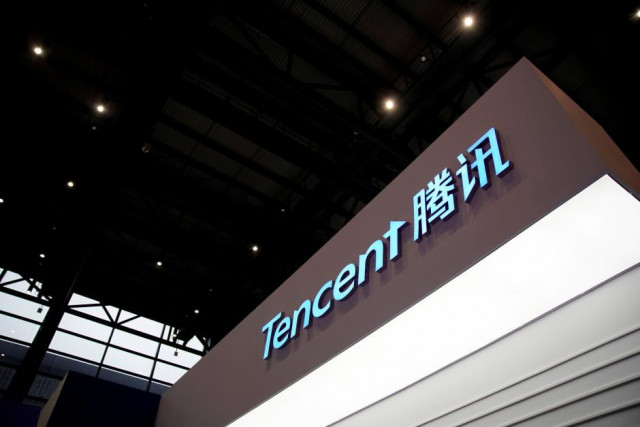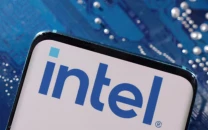Tencent Music raises $1 billion in US IPO
For registration purposes

A sign of Tencent is seen during the fourth World Internet Conference in Wuzhen, Zhejiang province, China. PHOTO: REUTERS
The music arm of tech giant Tencent, which plans to list either on the Nasdaq or the New York Stock Exchange, set a placeholder amount of $1 billion for registration purposes. Sources said last month it was hoping to raise $2 billion.
With streaming apps QQ Music, Kugou, Kuwo as well as karaoke app WeSing, Tencent Music is China’s largest online music platform boasting more than 800 million monthly active users.
Apple says it is monitoring Infowars app for content violations
It is often compared to Spotify, but the Chinese firm offers more in the way of socially interactive services that makes it profitable while its Swedish counterpart is not.
Music-centric social entertainment services, which include virtual gifts and premium memberships, accounted for just over 70 per cent of the $1.65 billion in revenue it made in 2017, its filing with the US Securities and Exchange Commission said.
Profit after tax came in at $199 million. The filing also showed that only 3.6 per cent of Tencent Music users pay for music.
For the first half of this year, revenue jumped 92 per cent to $1.3 billion while profits after tax climbed roughly fourfold to $263 million.
By comparison, Spotify, with which it has a cross shareholding deal, lost 90 million euros [$104 million] in the second quarter of this year on revenue of 1.3 billion euros.
The number of Tencent Music shares to be sold were not disclosed and potential valuations were unclear. Spotify is now valued at $31 billion, with shares gaining about 8 per cent since its US debut in April.
Chinese companies have raised $7.5 billion in US markets so far this year, the biggest amount since 2014, according to Refinitiv data.
These include video streaming company iQiyi, which raised $2.4 billion, electric vehicle startup Nio which raised $1 billion, and online group discounter Pinduoduo which raised $1.63 billion.
Tech firms should be made liable for ‘fake news’ on sites
Tencent Music’s IPO comes as the global music industry gets back on track with more listeners streaming music through smartphone apps compared to a few years ago when the market was dominated by pirated music.
Its apps have over 20 million tracks from both international and domestic music labels, the filing said, while millions of users go to the karaoke app WeSing daily.
WeSing allows people to have karaoke parties in virtual singing rooms, challenge each other in sing-offs and sing duets with celebrities or other users.
Bank of America, Deutsche Bank, Goldman Sachs, JPMorgan and Morgan Stanley are the lead sponsors of the deal.


















COMMENTS
Comments are moderated and generally will be posted if they are on-topic and not abusive.
For more information, please see our Comments FAQ